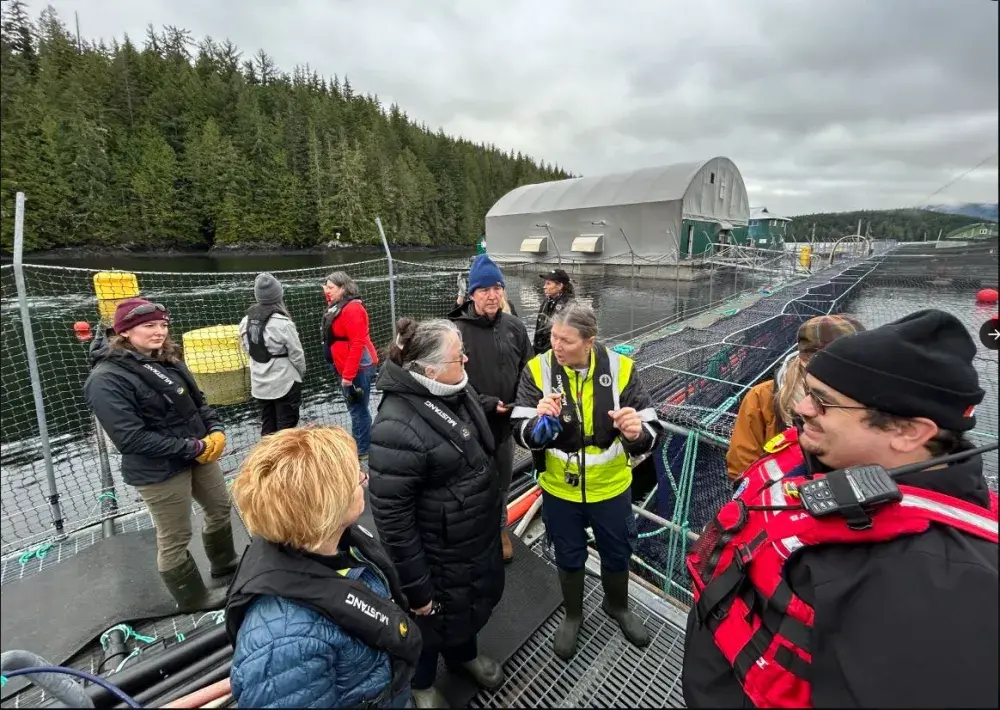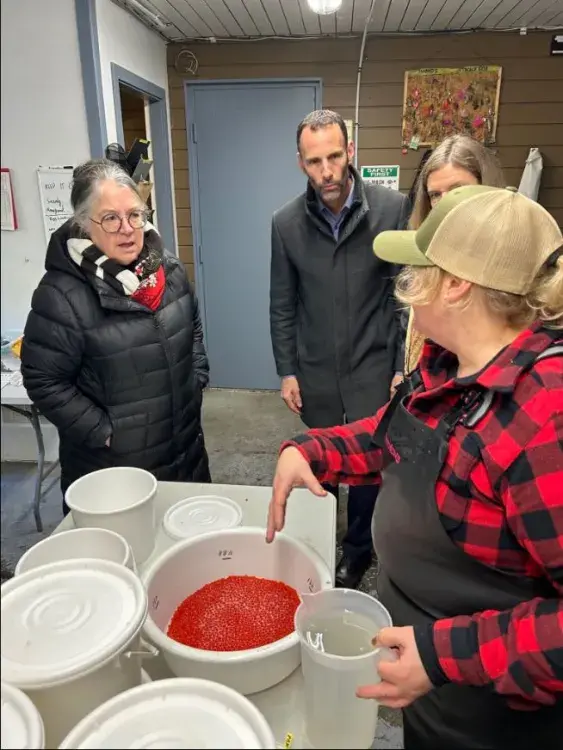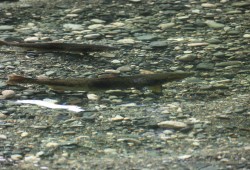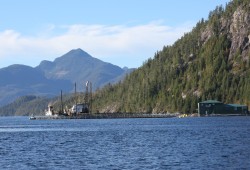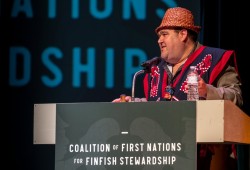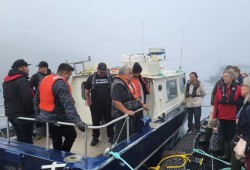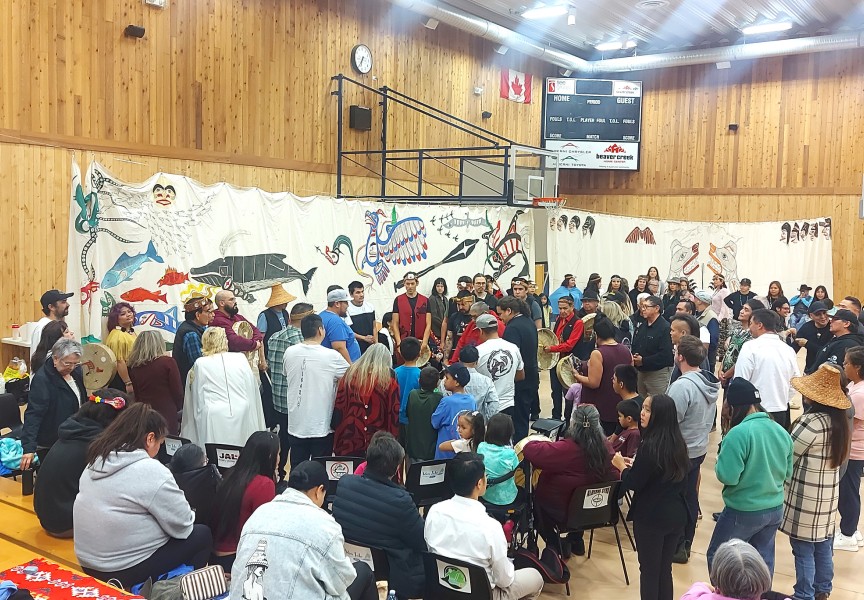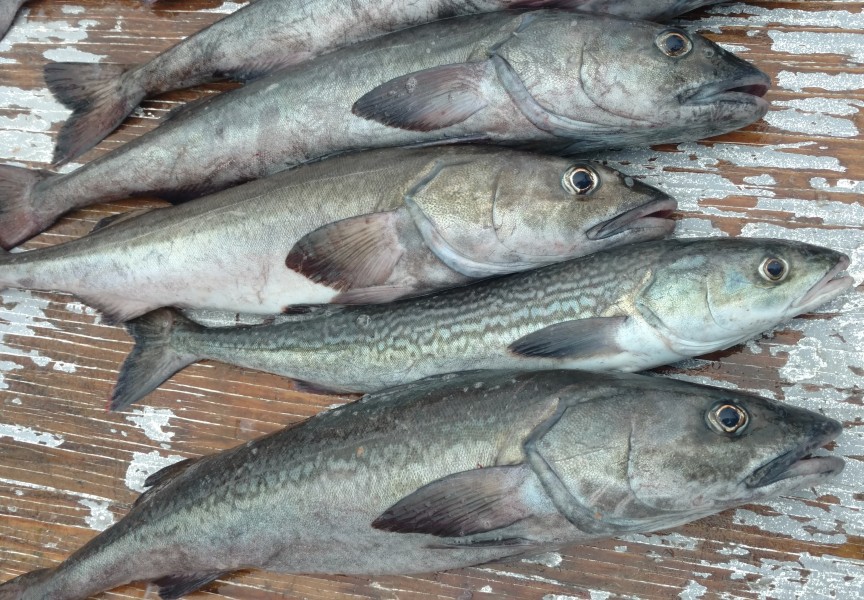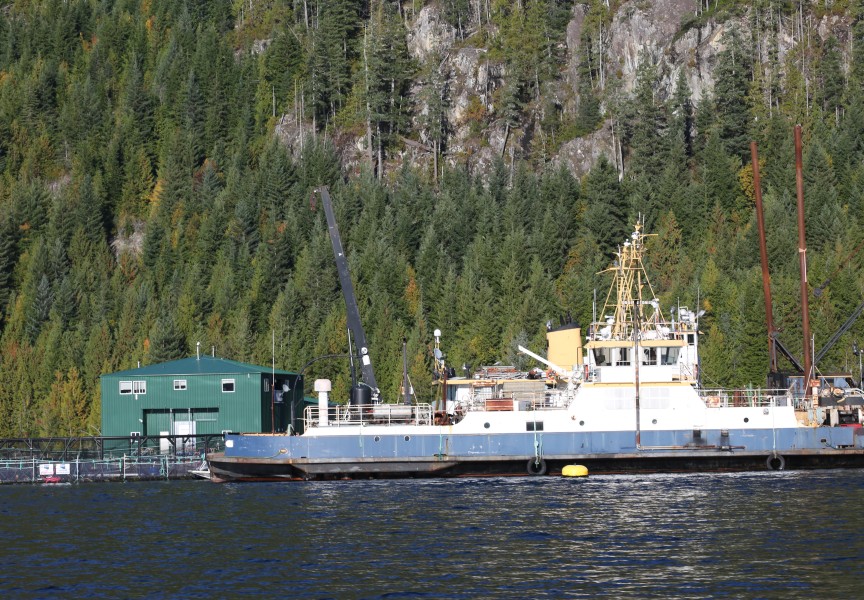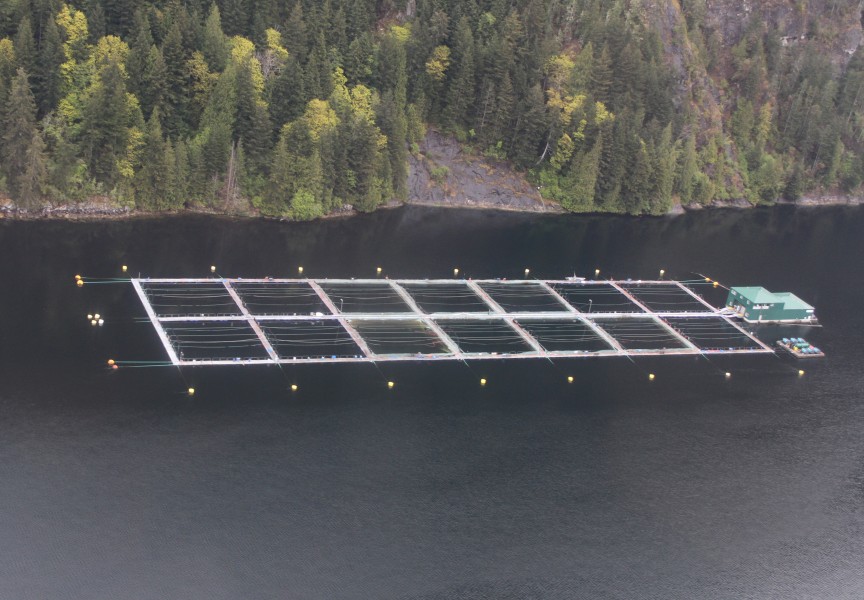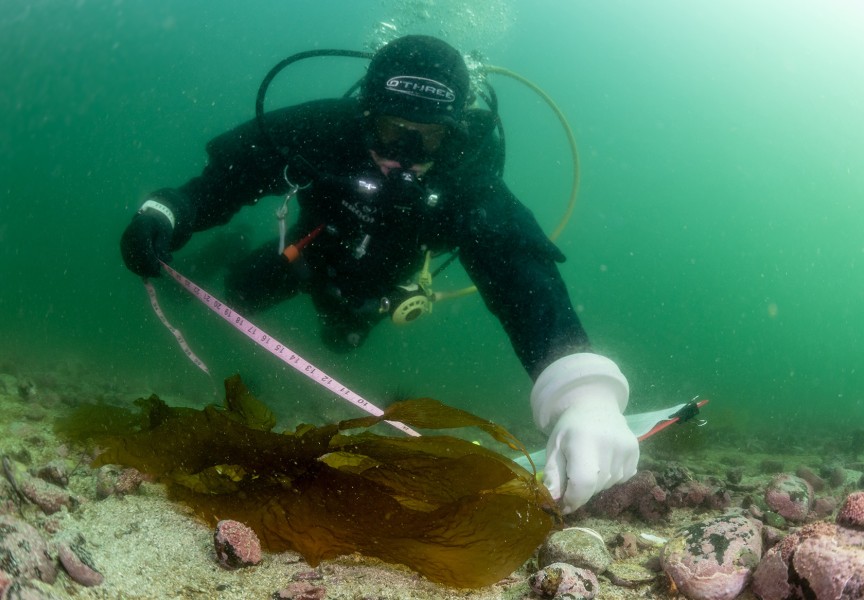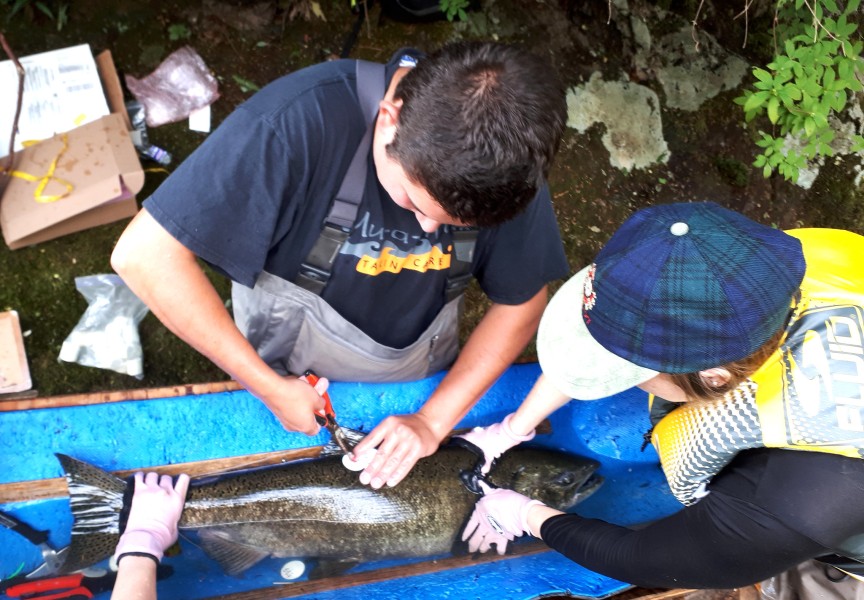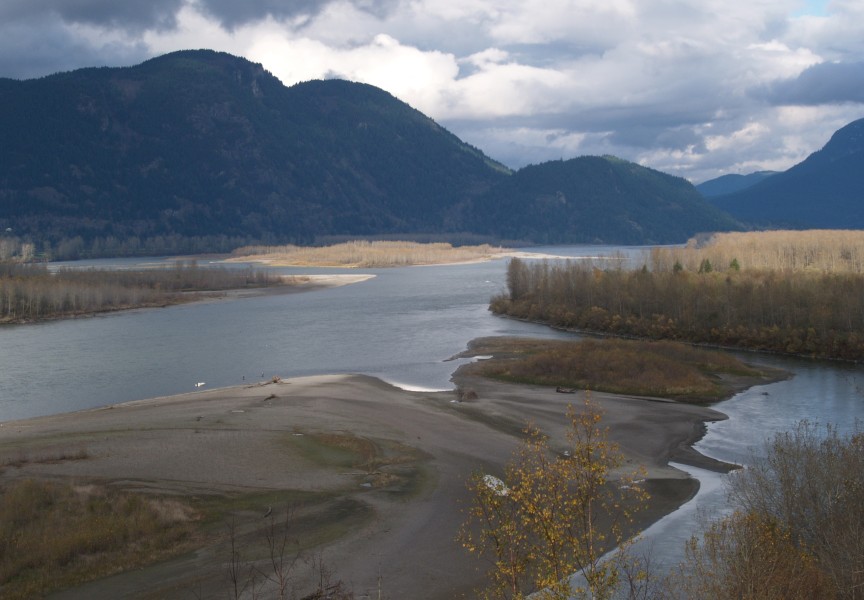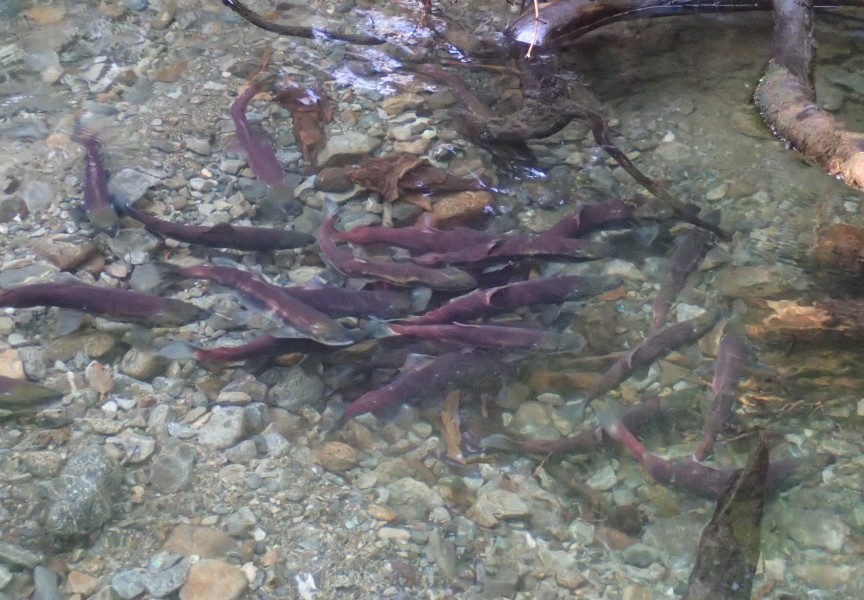The time is quickly approaching for the government to deliver a plan to remove net pens from the ocean, although Canada’s fisheries minister is assuring those tied to the salmon farming industry that no sites will be closed in 2025.
Since 2019 salmon farming has faced a federal mandate to transition from the common industry practice of using net pens in B.C.’s coastal waters. Meeting calls from multiple advocacy groups to eliminate the practice, in December 2019 Prime Minister Justin Trudeau issued former fisheries minister Bernadette Jordan with a post-election directive.
“Work with the province of British Columbia and Indigenous communities to create a responsible plan to transition from open net-pen salmon farming in coastal British Columbia waters by 2025,” read Trudeau’s mandate letter.
Four years later, it appears a plan will be in place by that date, although when and if net pens are removed from the ocean remains a point of speculation.
In July Diane Lebouthillier was named the next minster of Fisheries, Oceans and the Canadian Coast Guard, the third MP to hold the title since the net-pen transition mandate was issued four years ago. In December she came to the B.C. coast, a week-long trip that included meetings with some First Nation leaders and a visit to a fish farm near Port Hardy. During an interview with Ha-Shilth-Sa through a French translator, Lebouthillier stressed that although a transition plan is coming, this doesn’t necessarily mean more sites will be removed from coastal waters in the coming years.
“It doesn’t say that we have to close everything, that we have to close all the aquaculture centres. It really means working to put in place measures to protect wild salmon,” she said of the net-pen transition mandate. “I’ve confirmed that there will be no closure of aquaculture centres in 2025. We’re going to present a transition plan, and then we’ll go from there.”
At stake is the future of a species closely tied to the cultural survival of Nuu-chah-nulth. In February the First Nations Fisheries Council of B.C. issued a dire warning, stating that 90 per cent of Pacific salmon populations have declined since the 1970s.
“For First Nations communities on the West Coast of British Columbia, salmon are a pillar of our culture and society,” said Hugh Braker, president First Nations Fisheries Council of B.C. “I cannot imagine the cultures of the West Coast people without salmon, it would be difficult.”
Fraser River populations are particularly threatened, according to the Committee on the Status of Endangered Wildlife in Canada. The committee has assessed 31 salmon units from the Fraser watershed, listing 11 as endangered, two as threatened and seven under “special concern”.
Over a decade ago the Cohen Commission of Inquiry identified fish farms off the coast of Campbell River as a potential risk to these stocks.
“Salmon farms along the sockeye migration route in the Discovery Islands have the potential to introduce exotic diseases and to exacerbate endemic diseases which can have a negative impact on Fraser River sockeye,” stated the commission’s report from 2012. “I therefore conclude that the potential harm posed by salmon farms to Fraser River sockeye salmon is serious or irreversible.”
Over the following years, the 15 Discovery Islands sites became a focal point for those on either sides of the issue. Then in late 2020 Bernadette Jordan announced that the farms would be closed. Operators stopped stocking the pens, while court challenges followed.
An announcement from Fisheries and Oceans Canada in February of 2023 affirmed that the Discovery Islands sites would be closed permanently, due to scientific uncertainty of how the farmed Atlantic salmon are impacting wild stocks. DFO noted that many First Nations along the Fraser River had been unable to access salmon for food, social and ceremonial purposes.
“The state of wild Pacific salmon is dire, and we must do what we can to ensure their survival,” stated Joyce Murray, who was fisheries minster at the time. “This was a difficult but necessary decision.”
Some First Nations in the region northeast of Vancouver Island supported this announcement, while others disputed the federal government enforcing its will in territorial waters that Indigenous communities have called home for countless generations. The Wei Wai Kai and Wei Wai Kum Nations applied for a judicial review of the decision, and a court hearing on the issue was underway in Vancouver in December while Lebouthillier visited some of B.C.’s coastal communities.
The Coalition of First Nations for Finfish Stewardship is among the groups who have advocated for more say in the future of salmon farms.
“In remote communities, full-time, meaningful employment is almost like having three jobs in the city just for the impact that it has,” said Dallas Smith of Tlowitsis Nation, who is a spokesperson for CFNFFS, during an interview with Ha-Shilth-Sa in October. “Not only does it bring economic opportunity to families and to the workers, it also takes the stress off social service systems that are already overburdened in some of our remote communities.”
Cermaq is one of the three companies that operated the 15 sites in the Discovery Islands. Since 2006 Cermaq has also had a protocol agreement with Ahousaht to run salmon farms in the First Nation’s waters in Clayoquot Sound, an agreement that entails employment, operational planning, environmental stewardship and business opportunities.
In an opinion piece recently published by iPolitics, Ahousaht’s acting Tyee Ha’wilth Hasheukumiss, Richard George, stated that the government’s mandate to remove net pens was issued without “any meaningful consultation” with the First Nation.
“Ahousaht has taken significant steps to ensure the responsible management of aquaculture facilities on our territory, and to protect wild salmon,” he wrote. “Closing aquaculture sites doesn’t only fly in the face or our rights as a nation. It means devastating job losses, food security concerns, and increased daily costs for Ahousaht muschim (people). It also threatens existing economic partnerships and agreements with aquaculture operators, undermining governance and economic stability.”
After visiting coastal communities on the east side of Vancouver Island, Lebouthillier said that working with First Nations is critical for Canada to better protect its lands and waters.
“All the fishers and Indigenous communities are telling me that we need to work much more collaboratively. We need to work with science to really counter the current devastating effects on wild fish,” she said, noting that a net-pen transition plan should be ready in 2024. “We’re going to take our time, we’re going to do things right, we’re going to table a plan - but we’re going to have something that’s more realistic, achievable and that’s going to be responsible and that’s going to take into account the impacts in the environment, in rural areas.”

